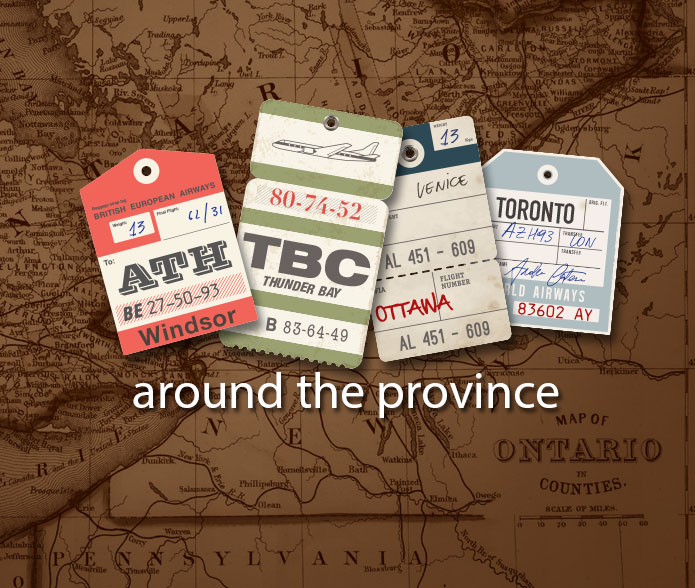Can mentorship help you in a career transition? Toby explores this as he recounts his decision to walk away from a tenure-track faculty position to become a librarian. Through OLA MentorMatch, he met with Jennifer Peters who helped him find where to focus on his job search.
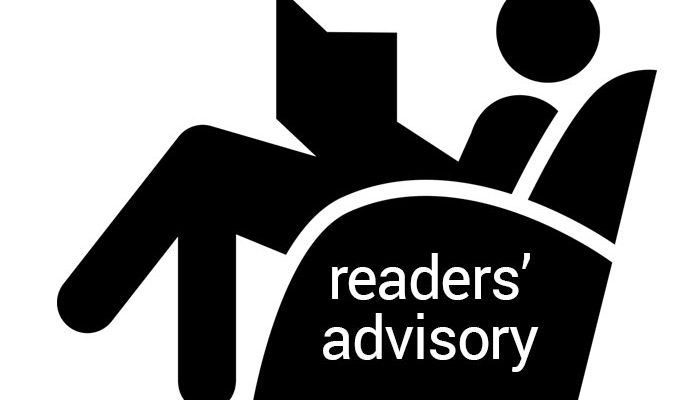
Challenge accepted!
By Jeff Dodge
It’s a new year and a great time for making reading resolutions. One form this resolution may take is to respond to a reading challenge. Taking this type of challenge can not only be fun (there are all kinds of challenges available for all genres of books) but also a great opportunity to change some of our entrenched reading habits.
Choose from a variety of options
There are more than a few reading challenges available to the curious minded reader. They are often meant as a way to gently push and nudge readers away from the accustomed towards the wider, deliciously gooey mélange of the unfamiliar. Whether it’s the number of books read, a focus on a new-to-you genre or a particular topic in nonfiction like science or memoirs, a reading challenge can be wide open. Perhaps it could be a challenge that hopefully many will take on in 2021: reading more diversely.
Maybe your own library system has created its own reading challenge for your patrons. Goodreads promotes their very basic challenge as a way to get people to read more, Book Riot has their Read Harder Challenge, and the Fold Reading Challenge is a great one too, which asks readers to seek out diverse voices and stories (see below). Websites like Bookstr, ideas from social media, and blogs are also chockablock full of other options.
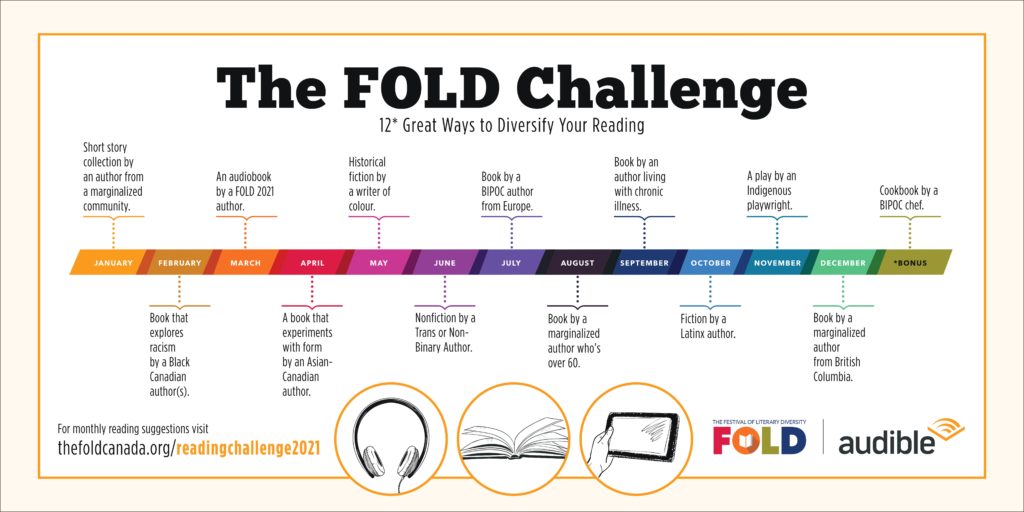
The Fold Challenge (thefoldcanada.org)
Ideally, any challenge leaves room for other reading outside their parameters; the worst case being that you’ll need to read more to fit everything in, but since when has reading more in a day ever been a problem? Any degree of toe-dipping into the unfamiliar will only help in any Readers Advisory conversation; try it and you’ll be one step closer to becoming that most skilled peddler of RA – The Well Rounded Reader.
Change reading habits and genres
In my own reading life, I’ve had a few run-ins with a close relative of the reading challenge – committee mandated reading. My first experience with targeted reading was the Evergreen Committee from several years ago, wherein I went from reading a few Canadian books each year to reading a few per month. This was the point at which I first started to think about reading in terms of variety and representation.
Admittedly, before this my repertoire of female Canadian authors was mostly limited to Alice Monro, the two Margarets, and a few Nova Scotian writers to stave off homesickness, but those days are long gone. Because of this mandated reading, I also read Black and Indigenous writers, regionally representative works, small press, non-fiction, graphic novels, short stories and so on. Reading for the Evergreen was my first (sort of) reading challenge.
Next up for me was focusing on science fiction and horror for the OLA Readers Advisory Committee’s past “RA in a Day” Best Bets selections. Up until then, I had rarely read in either genre, but was particularly poorly versed in science fiction.
Among the titles and authors I read on my way to picking my Best Bets were the great Urszula Le Guin, Frank Herbert’s Dune (finally!), Samuel Delany, Stanislav Lem, Charles Yu, Octavia Butler, brand new Damon Knight Grand Master award winner Nalo Hopkinson, Stephen King (for the first but not the last time in my life!), Alan Moore’s From Hell, Victor Lavalle, Shirley Jackson, Daphne du Maurier and many others. There is no question that these experiences left me more confident giving recommendations for both genres, and my Can-Lit RA game was raised several levels. Plus, I got to read great books along the way; win-win!
Try a DIY reading challenge
For those who aren’t joiners by nature, the DIY challenge could be for you.
Let’s now glimpse inside a homemade reading challenge…if you dare (or are stuck at home and desperate for distraction).
When the pandemic first hit, back when most every shop, office building and library etc. was shuttered, I too was shuttered. I was working from home and rarely left my neighbourhood, I never warmed to ebooks or audiobooks, and I was not willing to use Amazon. This meant that as long as libraries and bookstores were closed, my regular access to books was cut off. Fortunately for me, I’m an inveterate hoarder of books (thanks to the hat trick of the library world: discards, donations and ARCs) and had enough at home for multiple waves of the pandemic lockdown if need be (here’s hoping that is just an exaggeration!). It’s like I had been prepping for the last 15 years for precisely this situation
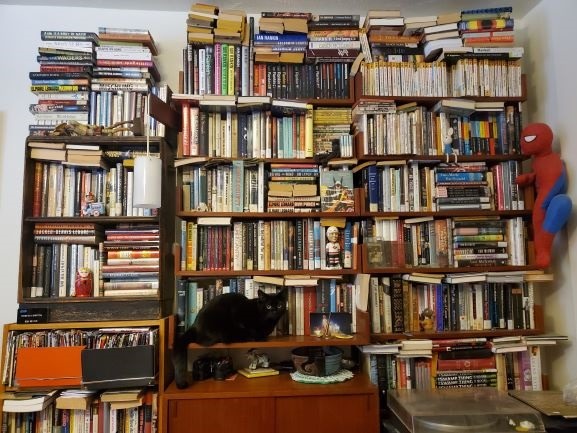
The fiction at my home is organized alphabetically (naturally) and the need to weed has long been undeniable. So I hit on an idea to evenly distribute the removals while also cutting down on the difficult “what to read next” dilemma at a time when any question beyond “what day of the week is it?” was challenging enough. My pandemic ambition was to read around the alphabet according to the author’s last name. The only rule being that it had to be a book I was comfortable weeding afterwards – their next journey was to be a one way trip to a nearby Little Free Library.
In late March I got started. I had A,B,C,M & W in duplicates somehow (see aforementioned hoarding problem), and so these were shoo-ins. Then, just because I could, I added a challenge within a challenge to try for as much variety as possible within the remaining choices for A-Z.
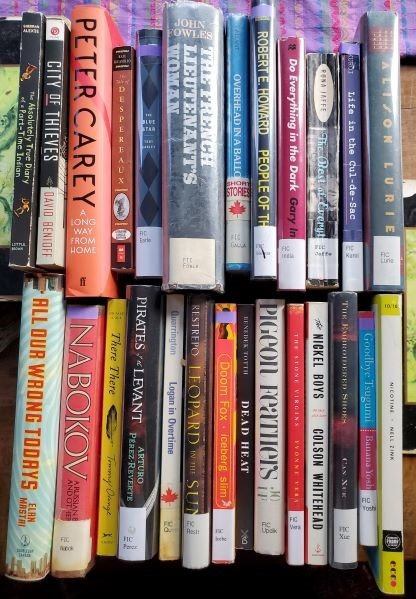
Among the books were Canadian authors (G,M,Q,V), books in translation (K,N,P,R,T,Y,X) junior fiction (D), short stories (G,H,U,X), award winners (A,D,K,O,W), various genres and literary styles and small press (T) from several different countries and 6 continents, from the 1930s (H), till the heartbreaking Nickel Boys in 2019. Along the way, I finally got to a few authors I had long wanted to read (G,U) as well as some authors I’ve seen on book tours but hadn’t yet caught up with actually reading (C,O,M,T,W).
There was not a single dud in the bunch, but I admit a few struggled to find footing within my foggy pandemic brain (N,X). Throughout the experience, I was excited to choose the next letter and I got an inordinate boost of morale as I crossed off each letter in the alphabet.
It was a “project” that came out of the pandemic, but it ended up being something apart from it – a small diversion I probably badly needed at the time. It’s also likely no surprise that the bloom started coming off the rose by the time I got to letter T in June – just when the lockdowns lifted.
Here we are back in lockdown with a second pandemic springtime looming and I see by my bookshelves I could technically do the entire alphabet challenge once more (thank you Eca de Queiros!) but I think that ship has sailed – although I haven’t totally ruled out reading my way through the Dewey classes.
Reflect on the idea of a reading challenge
Reading challenges may not be for everyone, but the benefits of opening up your neurons (sorry to get all scientific) to new horizons (either real or imaginary) should be clear by now. Exposure to new authors, stories, styles, topics, themes and more are just a “place hold” button away; allowing you to flex your RA muscles like never before.
In 2021, our profession really ought to be reading and promoting a wider range of experiences and voices and what better time than now to get started. Your challenge awaits you!
Jeff Dodge is the Collection Development Librarian at Vaughan Public Libraries. He currently sits on the OPLA Readers’ Advisory Committee and the Evergreen Award Committee. He sometimes can’t believe he found a job that provides the same thrill he found as a young kid collecting hockey cards and comics. He can be reached at jeff.dodge@vaughan.ca
